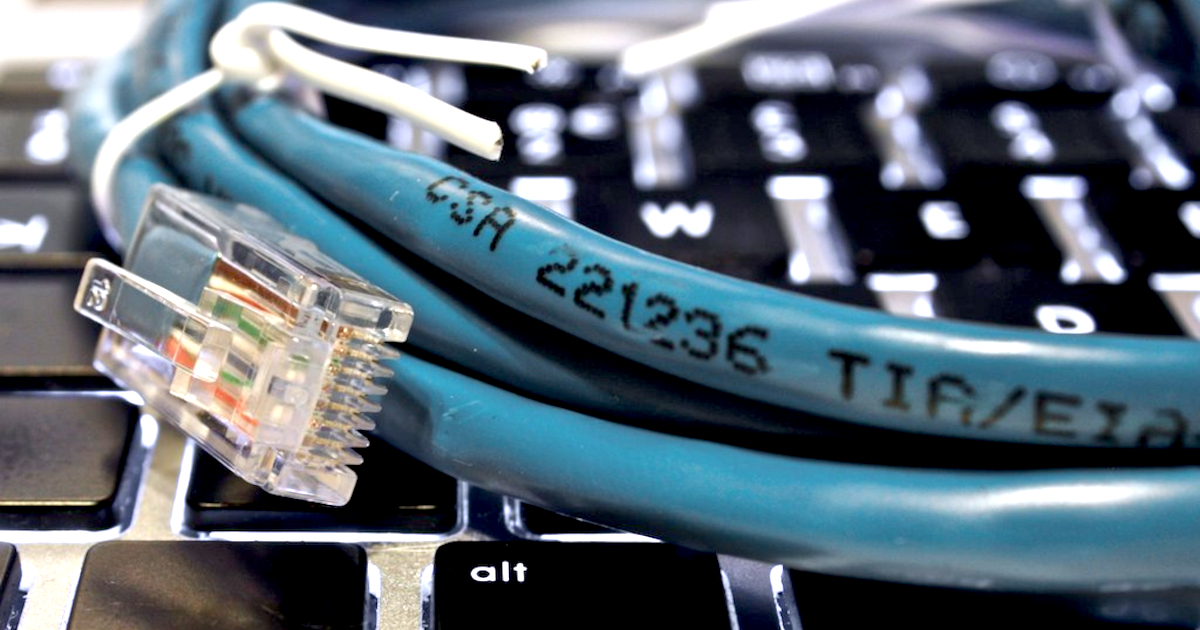Verizon vs. Xfinity: Which Internet Provider Is Best for You?
See which internet heavyweight you should pick for pricing, speed, and customer ratings.
Feb 22, 2024 | Share
Brand Guides
-
Best speeds
- Customer Rating: 3.9
- Price: $49.99–$84.99/mo.
- Speed: 300–2,048 Mbps
- Internet type: Fiber, 5G
- Data cap: None
- Contract: Month to month
-
Best availability
- Customer rating: 3.9
- Price: $30.00–$80.00/mo.
- Speed: 75–1,200 Mbps
- Internet type: Cable
- Data cap: 1.2 TB
- Contract: 1–2 yrs., month-to-month options
Data effective as of 11/09/2023 prices and availability may vary by location and are subject to change.
Compare Verizon and Xfinity head to head
We’ll come right out and say it—Verizon is the clear leader here. Verizon Fios fiber internet delivers fast, reliable internet speeds over its fiber network. Its upload speeds are much faster than most other internet providers, so it’s great for gaming and uploading videos. And Verizon’s 5G Home Internet option is worth trying if you want to save money on monthly billing.
But Xfinity is also a solid bet and a better option for some people. It has a much larger network, a wider selection of plans, and some affordable internet options that still deliver solid cable speeds.
Pros and cons: Verizon vs. Xfinity
 Pros:
Pros:
- Fast upload speeds
- Extremely reliable fiber connection
- Affordable prices on most fiber plans
 Cons:
Cons:
- Relatively high price for gigabit plan
- Limited fiber availability
- Risk of disconnects on 5G Home plan
 Pros:
Pros:
- Good speeds for the price
- Wide availability
- Cheap internet options
 Cons:
Cons:
- Data caps on all packages
- Slow upload speeds
Enter your zip code to see if Verizon or Xfinity are available in your area.
Plans and pricing: Verizon vs. Xfinity
Verizon goes big on speed, giving you the decently priced Gigabit Connection option and “symmetrical” upload speeds with most plans—meaning they’re just as fast as download speeds, a rare feat available on its fiber network. Verizon’s 5G Home plans aren’t quite as reliable as the Fios fiber plans, but they’re well priced and give you unlimited data.
Xfinity is more of a grab bag when it comes to speeds. Some of its plans give you slower speeds for a higher price compared to Verizon Fios, but you can also find affordable plans in a wider service area.
Pro tip: Are Verizon and Xfinity the same?
Verizon and Xfinity are not the same company. They’re two separate entities—the former is a fiber internet and wireless provider, and the latter is a cable TV and internet provider.
It can be easy to confuse Verizon with Xfinity because of Xfinity Mobile. Xfinity Mobile is an MVNO (mobile virtual network operator) that gives you cellular service over Verizon’s network. Other than that, these two companies don’t overlap.
Verizon plans and pricing
| Package | Price | Speed (download/upload) | Details |
|---|---|---|---|
| Internet 300/300 | $49.99/mo.* | 300 Mbps/300 Mbps | |
| Internet 500/500† | $69.99/mo.* | 500 Mbps/500 Mbps | |
| Internet 1 Gig | $89.99/mo.* | Up to 940 Mbps/up to 880 Mbps | |
| Internet 2 Gig | $84.99/mo.* | Up to 2,048 Mbps/up to 2,048 Mbps | |
| 5G Home Internet | $35/mo. (for Verizon Unlimited phone plan subscribers)* or $60/mo. (for nonsubscribers, w/ autopay)§ | Up to 300 Mbps | |
| 5G Home Internet Plus | $45/mo. (for Verizon Unlimited phone plan subscribers)* or $80/mo. (for nonsubscribers, w/ autopay)§ | Up to 1,000 Mbps | |
| LTE Home Internet | $60.00/mo.*, $35.00/mo. with Auto Pay and select 5G mobile plans. § | 25-50 Mbps |
Data effective as of 10/10/2023. Prices and availability vary by region and are subject to change.
*w/ Auto Pay. Available in select areas.
§w/ Auto Pay and select 5G mobile plans. Available in select areas.
Fiber providers have been competing a lot to deliver fast and affordable plans, and Verizon Fios seems to be stepping up its game even more. All of its fiber plans get you excellent speeds at a solid price. Best of all, you’ll get upload speeds that match your download speeds with most plans, ensuring you have a robust connection even if multiple people use your Wi-Fi to attend video meetings and upload video content at the same time.
Verizon doesn’t have data caps on any of its internet plans, so you can spend as much time streaming or playing games as you want without worrying about going over. Also, you can cancel any time without having to pay early termination fees.
In some cities you can also get Verizon 5G Home Internet, a fixed wireless service that delivers solid speeds over the carrier’s Ultra Wideband 5G cellular network. The connection on 5G internet can be a little spotty for some users—we experienced regular disconnections when we tried out the service.
But the plan is still a worthy deal, giving you speeds of up to 300 Mbps or 1,000 Mbps (depending on the plan) and unlimited data with no extra fees or annual contracts.
5G home internet vs. cable internet: Which one is better?
Verizon’s 5G Home Internet service is a much better deal compared to the cable internet you get from Xfinity. Although the connection isn’t as reliable, the speeds are pretty much the same while the prices are cheaper and the contract terms much more favorable. You don’t have to sign up for an annual contract or worry about data caps, and you get an equipment rental and installation at no extra cost. You also don’t have to worry as much about price hikes.
However, Xfinity’s cable internet gives you a more reliable connection on a daily basis. A coaxial cable network is just a lot more consistent than a wireless one. So if you’re worried about dealing with a spotty connection, you may be better off with Xfinity.
Is 5G internet as fast as cable internet?
5G home internet isn’t as fast as cable internet. Technically, it can deliver the same advertised speeds as a cable connection, but a coaxial cable network is more reliable and far more likely to deliver high speeds on a stable basis because it doesn’t rely on a wireless network.
Verizon’s DSL plan—called Verizon High-Speed Internet—is not as good of a deal. Its upload and download speeds won’t be nearly as fast as any of Verizon’s fiber plans and costs more than many rival DSL plans. But it’s worth considering if your other option is satellite internet.
Xfinity plans and pricing
| Package | Price | Speed (download/upload) | Details |
|---|---|---|---|
| Connect | $30.00/mo.* | 75 Mbps/10 Mbps | View Plan |
| Connect More | $35.00/mo.** | 200 Mbps/10 Mbps | View Plan |
| Fast | $55.00/mo.# | 400 Mbps/10 Mbps | View Plan |
| Superfast | $65.00/mo.# | 800 Mbps/20 Mbps | View Plan |
| Gigabit | $75.00/mo.# | 1 Gbps/20 Mbps | View Plan |
| Gigabit Extra | $80.00/mo.** | 1,2000 Mbps/35 Mbps | View Plan |
Data effective as of 10/10/2023. Prices and availability vary by region and are subject to change.
*For 12 months. No term contract. Taxes and equipment not included. Includes $10/mo automatic payments and paperless billing discount. Regional price differences may apply.
**No term contract. Taxes not included. Includes $10/mo automatic payments and paperless billing discount.
#For 24 months. No term contract. Taxes and equipment not included. Includes $10/mo automatic payments and paperless billing discount.
Xfinity’s plans vary in name and price based on region, so you may find a different list of plans than what we have listed here. But you’re pretty much getting the same thing no matter what. Most of these plans have excellent speeds and fair prices.
Xfinity’s upload speeds are a lot slower and you have a 1.2 TB data cap, which isn’t the case with Verizon. That’s not ideal, but it’s also not necessarily a deal-breaker—most internet users don’t notice sluggish upload speeds anyway and 1.2 TB is still a lot of data.
Want to see if you’re getting the speeds you’re paying for?
Download our speed test app to find out. Run the test during the morning, afternoon, and evening to see if there are any differences. Some internet plans slow down at night during peak usage hours.
Want to see if you’re getting the speeds you’re paying for?
Take our speed test to find out. Run the test during the morning, afternoon, and evening to see if there are any differences. Some internet plans slow down at night during peak usage hours.
We’d be remiss not to mention Xfinity’s Gigabit Pro plan, which maxes out at a ridiculously fast 6,000 Mbps. Honestly, that’s way more speed than the majority of internet users need. And it’s prohibitively expensive. And availability is extremely limited, so don’t get too distracted with that one.

Deals and promotions: Verizon vs. Xfinity
News Fios 1 Gig and Fios 2 Gig customers are eligible for either Disney+ Premium for six month or a free MoCA Ethernet Adapter and $50 Xbox eGift Card.
Add Xfinity mobile and get $25 a month off internet faster than a gig. Also, get unlimited data and Wi-Fi equipment for 24 months. Get the Deal
Extra fees: Verizon vs. Xfinity
| Equipment fee | Installation fee | Other fees | |
|---|---|---|---|
| Verizon Home Internet | No equipment fee | $99.00 (waived if you order online) | 1.5% of the owed balance or $5 (late fee) |
| Xfinity | $14.00/mo. | $99.00; starts at no cost for self-install | $10.00/mo. (early termination), $10.00 per 50 GB of data you go over on data cap, $10.00 (late payment) |
Data as of 02/28/23. Offers and availability may vary by location and are subject to change.
Verizon’s router is included on all fiber plans as part of the monthly fee. That saves you a nice chunk of change because it means you don’t need to pay extra for a router rental and you don’t need to buy your own router either. Verizon 5G Home Internet plans also come with a router at no extra cost.
You can’t use your own router for the 5G home internet plans, but you can for a fiber plan. And there are some advantages to buying a router—you get more flexibility as far as speeds, security settings, and other capabilities. We have great recommendations in our guides to the best Wi-Fi routers, the best long-range routers, and the best routers for streaming.
Pro tip:
Our top pick for a router is Google Nest Wi-Fi, a two-band mesh router that delivers excellent speeds over a range of up to 2,200 square feet.
Amazon.com Price (as of 8/30/22 10:15 MST). See full disclaimer.
Xfinity also lets you rent a combined modem and router—known as the xFi Gateway. These crucial pieces of equipment support the internet signal in your home and provide Wi-Fi access for a range of devices, so you’ll need to rent a modem and router or buy your own Xfinity router, no matter what.
Should you rent a router? Or buy your own?
It’s easier just to rent a router since then there’s no need for shopping around. And if you get it at no extra cost anyway (as in the case with Verizon plans), then you have nothing to lose. But we recommend buying your own if you can. Having your own modem and router could save you some money and give you more flexibility when it comes to speed, security settings, and more.
Pro tip:
If you play a lot of video games online, consider investing in a gaming router to get the fastest speeds and cut down on lag. The best gaming router for Verizon Fios is the ASUS ROG Rapture GT-AX11000, which rocks the house with Wi-Fi 6 capability and Quality of Service (QoS) controls.
Amazon.com Price (as of 8/30/22 10:15 MST). See full disclaimer.
Customer ratings: Verizon vs. Xfinity
| Overall | Speed | Price | Reliability | Customer service | |
|---|---|---|---|---|---|
| Verizon Home Internet | 3.9/5 | 4.0/5 | 3.6/5 | 4.0/5 | 3.9/5 |
| Xfinity | 3.9/5 | 4.0/5 | 3.5/5 | 3.9/5 | 3.7/5 |
Customers quite like both Verizon and Xfinity, according to our annual customer satisfaction survey. Out of 15 providers, Verizon gets the leading score for reliability and ranks in the top three for speed, price, customer service, and overall satisfaction.
Meanwhile, Xfinity takes the lead for speed—which is saying a lot, considering its cable service is technically slower than Verizon’s fiber. And Xfinity gets top-five ratings for reliability, price, and overall satisfaction.
If our survey is any indication, you’re likely to be happy with either of these providers.
Best TV and internet bundles
| Package | Internet speed (download/upload) | TV channels | Price | Details |
|---|---|---|---|---|
| Verizon 300 Mbps Internet + Your Fios TV | 300 Mbps/300 Mbps | 125+# | $99.99/mo. | |
| Verizon Fios Gigabit Connection + More Fios TV | Up to 940 Mbps/up to 880 Mbps | 300+| | $163.99/mo. | |
| Xfinity Connect Internet + Choice TV* | 75 Mbps/10 Mbps | 10+ | $49.95/mo. | View Plans |
| Xfinity Super Fast Internet + Popular TV** | 800 Mbps/20 Mbps | 125+ | $149.60/mo. | View Plans |
# w/ Auto Pay. Available in select areas.
| w/ Auto Pay and select 5G mobile plans. Available in select areas.
*Internet for the first 12 months with a 1-year term contract. No term contract for TV. Does not include $17.00/mo broadcast TV fee; price subject to change. Taxes and equipment not included.
**Internet has no term contract. Taxes not included. Unlimited data and WiFi equipment included for new Xfinity Customers only for 12 months. Not available in all areas. TV has no term contract. Does not include $17.00/mo broadcast TV fee and $9.00/mo regional sports fee; price subj to change. Taxes and TV equipment not included.
Xfinity is a leading cable provider, so it can get you a solid bundle deal on both internet and TV service. We really like the Super Fast Internet + Popular TV package because it gives you excellent speeds and a lot of channels for just under $200 a month.
Verizon has Fios TV, a streaming TV service that runs over Verizon’s fiber-optic lines. It gives you excellent video quality and cool options—you’ll choose your five favorite channels and Verizon recommends the best TV plan for you based on your preferences. We recommend the 300 Mbps Internet + Your Fios TV package because it lets you build out your own channel lineup based on your favorite channels. It’s also affordable and comes with solid speeds.
Internet technology types: Verizon vs. Xfinity
| Internet type | Details | |
|---|---|---|
| Verizon Home Internet | Fiber, DSL | |
| Xfinity | Cable | View Plans |
Fiber internet is the fastest and most reliable internet you can get, capable of hitting multigigabit speeds and delivering the fastest upload speeds possible. Cable doesn’t have the same fast upload speeds, but it’s much more widely available and tops out at 1,000 Mbps download speeds (which is still really fast). DSL is the slowest of these three, topping out at around 100 Mbps. Most DSL plans are much slower—Verizon’s DSL speeds hit a max of 15 Mbps.
Data caps: Verizon vs. Xfinity
| Data cap | Details | |
|---|---|---|
| Verizon Home Internet | None | |
| Xfinity | 1.2 TB | View Plans |
Verizon doesn’t have data caps on any of its internet plans. You can use as much data as you like without having to worry about exceeding a monthly allowance.
Xfinity imposes a 1.2 TB data cap on all of its internet plans. That’s not ideal if you have the Gigabit or Gigabit Pro plan—most gigabit plans come with unlimited data. You can get unlimited data for an extra $25–$30 per month. Otherwise, you’ll be charged $10 for every 50 GB that exceeds your cap.
Contracts: Verizon vs. Xfinity
| Contract length | Details | |
|---|---|---|
| Verizon Home Internet | Month to month | |
| Xfinity | 1–2 yrs.; month-to-month options for $10 more per month | View Plans |
Verizon’s internet plans don’t come with any annual-contract obligations. You can quit any time and you won’t be charged an early termination fee—simple as that.
Xfinity offers plans with annual contracts. The Gigabit Extra and Gigabit Pro plans require 2–year contracts, while most other plans come with 1–year contracts.
Canceling Xfinity internet service early means you have to pay $10 for every month left on your bill. You can choose a no-contract arrangement, which in most cases would be great. But with Xfinity it kind of makes no difference with price in the end since the no-contract option costs an extra $10 per month.
Installation: Verizon vs. Xfinity
| Installation options | Details | |
|---|---|---|
| Verizon Home Internet | $99.00 (waived when you order online) | |
| Xfinity | Free for Self Installation $99.00 for professional installation | View Plans |
Data as of 8/30/22. Offers and availability may vary by location and are subject to change.
Verizon charges $99.00 for professional installation, but you can have the price waived by ordering online. You don’t always have the option to do self-install with Verizon. Fiber internet isn’t always wired directly to the home, so you might need a technician to come over and set it up from a curbside network node.
Xfinity does let you pick a self-install option—it’ll mail you a kit for no extra fee. If you’re in a hurry, you can pay $29.99 so it arrives in one to two business days instead of three to five. Xfinity also has the $39.99 Self Install Plus option, where a technician comes over with your self-install kit and verifies that your connections are working as you set it all up.
Availability: Verizon vs. Xfinity
Xfinity has a large nationwide network, available to 130 million people in 41 states. Verizon has a smaller footprint, with a network that can reach 59 million people in 10 East Coast states.
Type in your zip code below to see whether Verizon and Xfinity are available in your area. Let’s see what you can choose from when it comes to packages, prices, and speeds.
Final call: Verizon vs. Xfinity
Verizon is the slam-dunk pick here—its Fios plans give you superb speeds, fast uploads, and no data caps. And you don’t even have to sign up for an annual contract. The only catch is that the best Verizon plans might not be available in your area. It’s far less widely available than Xfinity.
We’re not so keen on Xfinity’s contractual obligations or data caps, but those are fairly common things you see from other internet providers and not deal-breakers by any means. You can get excellent speeds at a fair price on an Xfinity plan. And Xfinity has some nice bundling options, too, if you’re looking for cable TV.
View Xfinity Plans
Methodology
Our HighSpeedInternet.com editorial team bases our analyses on customer input from our annual customer satisfaction survey, results from our speed test tool, and proprietary internet provider data on speeds and pricing. To strengthen our research, we look closely at provider contracts to get hard-to-find information on price hikes, data caps, and extra fees, and we keep tabs on the latest news reports and online reviews. When applicable, we also rely on our personal experiences testing these services.
Disclaimer
Product prices and availability are accurate as of the date/time indicated and are subject to change. Any price and availability information displayed on Amazon.com at the time of purchase will apply to the purchase of this product. HighSpeedInternet.com utilizes paid Amazon links.
CERTAIN CONTENT THAT APPEARS ON THIS SITE COMES FROM AMAZON. THIS CONTENT IS PROVIDED ‘AS IS’ AND IS SUBJECT TO CHANGE OR REMOVAL AT ANY TIME.
Author - Peter Holslin
Peter Holslin has more than a decade of experience working as a writer and freelance journalist. He graduated with a BA in liberal arts and journalism from New York City’s The New School University in 2008 and went on to contribute to publications like Rolling Stone, VICE, BuzzFeed, and countless others. At HighSpeedInternet.com, he focuses on covering 5G, nerding out about frequency bands and virtual RAN, and producing reviews on emerging services like 5G home internet. He also writes about internet providers and packages, hotspots, VPNs, and Wi-Fi troubleshooting.
Editor - Cara Haynes
Cara Haynes has been editing and writing in the digital space for seven years, and she's edited all things internet for HighSpeedInternet.com for five years. She graduated with a BA in English and a minor in editing from Brigham Young University. When she's not editing, she makes tech accessible through her freelance writing for brands like Pluralsight. She believes no one should feel lost in internet land and that a good internet connection significantly extends your life span.









